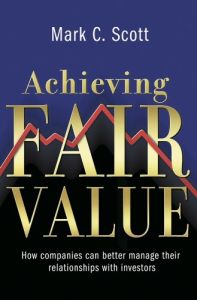
Recommendation
Warning: approach this focused book with some caution. Author Mark C. Scott seems knowledgeable about the United Kingdom’s market structures and practices. However, his text has some apparent flubs about U.S. financial theory and practice. For instance, he refers repeatedly to Sarbanes-Oxley legislation as "Oxley-Sarbanes." Is this just faulty proofreading, or a signal of unfamiliarity with the U.S. markets? Idiosyncratically, Scott uses the phrase "perfect markets" when he means "efficient markets," yet even market efficiency advocates acknowledge that markets are not "perfectly" efficient. Because this point is fundamental in financial theory, the distinction is worrisome in terms of assessing the book’s expertise. Scott refers to extensive research, but should have included more of it here. With those caveats, however, getAbstract gives him full credit for outlining an interesting, unconventional thesis about how markets work, how shares are valued and how companies should handle their communication with shareholders. Some of this information may be genuinely helpful to companies in the U.K., though it seems, perhaps, less applicable elsewhere. (For example, some of the shareholder communication practices described - such as making the managers of important funds into "temporary insiders" - should be evaluated in light of the Security and Exchange Commission’s disclosure laws before being considered in the U.S.)
Summary
About the Author
Mark C. Scott is the director of a strategic management center and the author of four books including The Professional Service Firm and Value Drivers.












Comment on this summary